'El 80' pleads guilty in US court, case gives view into Juárez drug cartel
A man once reputed to be one of the most notorious regional leaders of the Juárez drug cartel pleaded guilty in U.S. district court in Albuquerque to conspiring to smuggle marijuana into the United States.
Carlos Arturo Quintana, known as "El 80," faces five to 40 years in federal prison for his role in marijuana trafficking more than a decade ago as a member of the Juárez cartel, the U.S. Attorney's Office in New Mexico said.
Drug trafficking: DEA El Paso seizes 1.5 million pills of fentanyl in 2023, drug leading cause of overdoses
Quintana, 41, who was the police chief and the cartel plaza boss of Namiquipa, Chihuahua, pleaded guilty on Jan. 17 as part of a plea agreement. He remains jailed and is to be sentenced on March 18, according to court documents.
The marijuana case dates back to 2011 during a period when Juárez was inundated with bloodshed during the war between the Juárez and Sinaloa cartels. A federal grand jury indicted Quintana and 10 codefendants in a third superseding indictment in 2015.
In the years following the cartel war, Quintana, also referred to as "Ochenta" (Spanish for 80), reputedly gained power, becoming a leader in La Linea crime organization and a faction known as the New Juárez Drug Cartel.
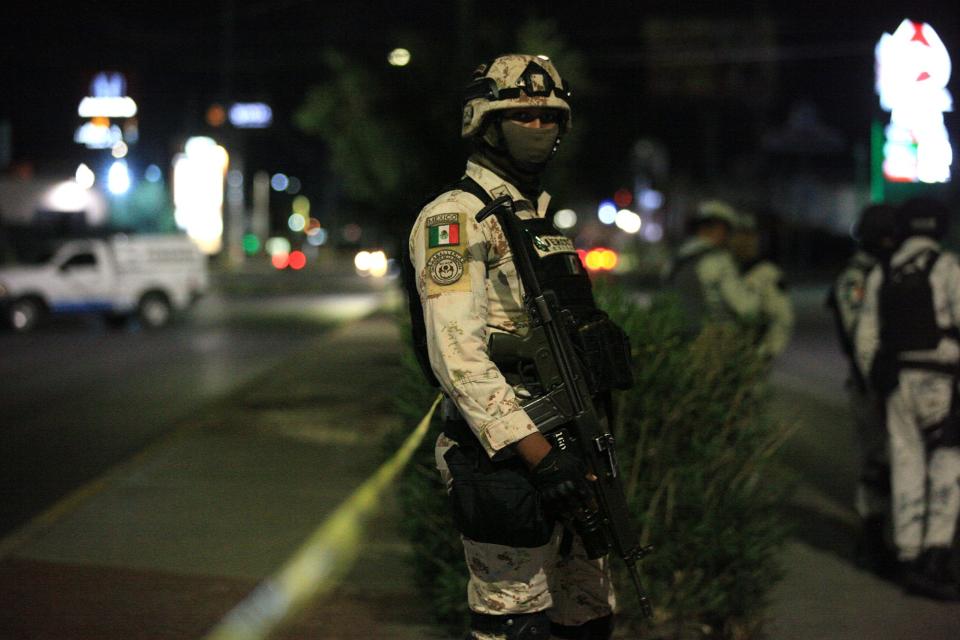
The 2011 case was linked to Operation Virus Maker and Operation Landslide, FBI-led investigations working with Mexican federal police targeting the hierarchy of the Juárez cartel, also referred to as the Vicente Carrillo Fuentes Organization (VCFO), according to federal documents.
Archives: Juárez cartel drug lord Vicente Carrillo Fuentes sentenced to 28 years in prison
The international operation included the FBI’s interception of cartel radio communications, tapped cellphones in Mexico and confidential informants and undercover agents on both sides of the border, court filings stated.
An FBI document stated that informants had provided more than 165 cartel-linked telephone numbers, another 76 U.S. numbers were found in contact with cartel numbers.
The Juárez cartel at its peak in the 1990s was believed to control half of all drug-trafficking routes in Mexico and was smuggling tons of cocaine, marijuana and other drugs yearly into the United States.
Marijuana deal in Mexico
An FBI affidavit in support of Quintana's extradition from Mexico and other documents detail how the case was based on a large-scale marijuana deal eventually resulting in a deadly shootout at a drug raid in Juárez.
In March 2011, a confidential informant working for the FBI made an offer to buy more than 1,300 pounds (600 kilos) of marijuana from the cartel for $50,000. The marijuana was to be smuggled over the border into New Mexico, with a final destination of Albuquerque, the affidavit stated.
On March 19, the buyer met with several reputed cartel members in the small town of Gomez Farias in rural western Chihuahua. Quintana arrived in a police patrol vehicle wearing a full police uniform and accompanied by three uniformed officers, the affidavit stated.
At the time, Quintana was known to be the cartel's plaza boss (territorial manager) in Namiquipa as well as the town's police chief, the affidavit stated. Namiquipa is about 120 miles northwest of Chihuahua City.
History: El Paso was first city in US to make the use of marijuana illegal
Quintana and his men brought with them a dump truck containing the marijuana wrapped in bundles. Three SUVs "filled with 'sicarios' (cartel assassins)" escorted the truck, the affidavit stated. The informant placed a GPS tracking device in the drug load.
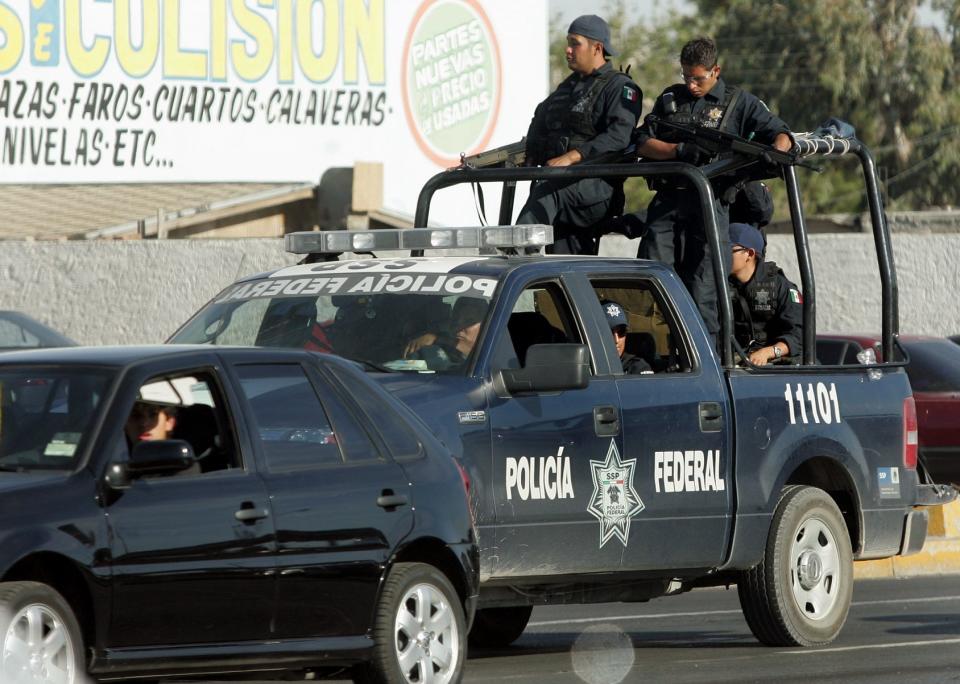
Two days later on March 21, the informant transported $50,000 in cash over the border in Santa Teresa, New Mexico. The payment of $20,000 was exchanged into pesos and wired to a bank account and $30,000 was delivered by a person to Gomez Farias, the affidavit stated.
The investigation found that the $50,000 went to a reputed cartel plaza boss named Elmy Hermosillo Trujillo, aka "El Potro" (the colt), "El Potrillo" and "El 9", as payment for the marijuana delivered by Quintana, the affidavit stated. Trujillo was indicted and is considered a fugitive wanted by the FBI.
The FBI with assistance from the El Paso Intelligence Center (EPIC) monitored the GPS tracker as the marijuana went through several cartel stash houses.
On March 23, the buyer received a coded call saying, "the cows had arrived, they're safe at los asaderos," which meant that the marijuana had arrived in the town of Villa Ahumada, famous for its asadero cheese.
Following the last known location of the GPS tracker, Mexican law enforcement raided a ranch in Villa Ahumada. But there was no one there and no marijuana was found, the affidavit stated. A marijuana press, drug ledgers, military uniforms, firearms, grenades and ammunition were seized. The FBI suspected that the marijuana may have been hidden in an underground storage because the tracker had stopped transmitting, but started sending a signal later.
"El Brad Pitt' and a deadly drug raid in Juárez
On March 26, with the tracker transmitting, Mexican federal police seized a ton and a half of marijuana after a shootout during a raid of a stash house run by the Barrio Azteca gang in south Juárez, according to the affidavit and El Paso Times archives.
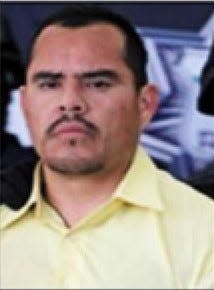
One of the stash house guards was killed in the shootout. Three men were arrested and several others escaped, including a reputed cartel member known as "El Brad Pitt," FBI documents stated.
"El Brad Pitt" was Marco Antonio Guzman Zuniga, a reputed cartel hit team leader, who was also named in the indictment. Mexican federal police arrested the former Juárez police officer in 2011. He is considered a fugitive by U.S. authorities.
"El Brad Pitt" doesn't look like the blond Hollywood heartthrob. Guzman reportedly got his nickname from buddies because he had dressed like the Brad Pitt character in the 2001 movie "Spy Game," wearing a baseball cap with a camera hanging around his neck, looking like a tourist.
Mexican special forces arrest 'El 80'
A special operation by an elite team of Mexican military and Mexican Federal Police arrested Quintana in Namiquipa without having to fire a shot in 2018. Quintana at the time was described a being the leader of the New Juárez Drug Cartel.
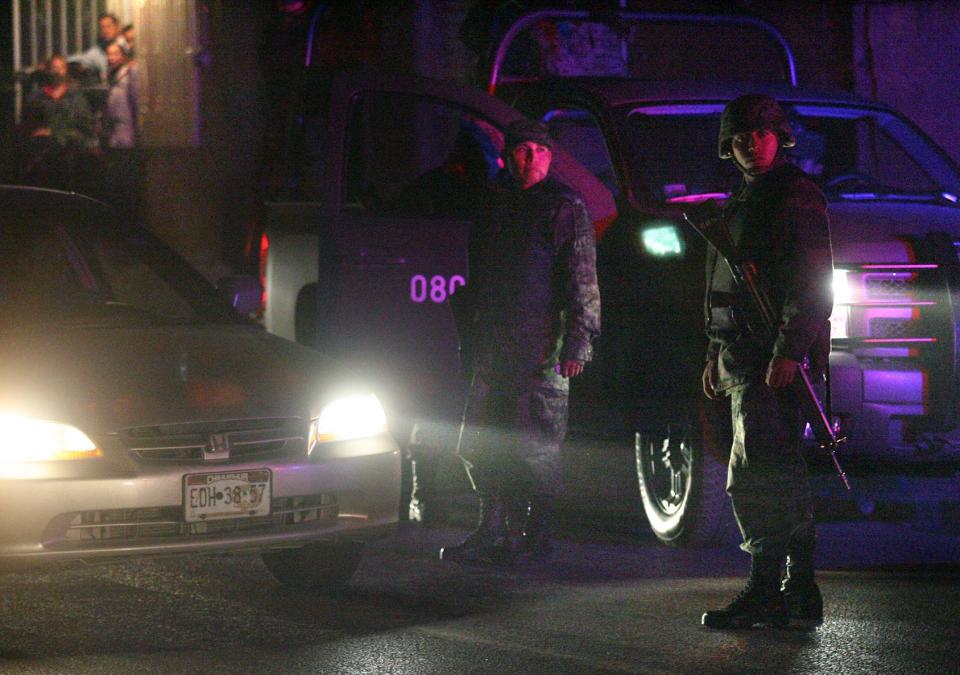
During the announcement of his arrest, Quintana was described by a Mexican federal police official as the "principal generator of violence in the state of Chihuahua."
Archives: 'Dear God, help us.' Cartel boss among 8 killed in Chihuahua violence
In August 2022, Quintana, who is a Mexican citizen, was extradited from Mexico to the United States to face the charges in the 2015 drug-trafficking indictment out of Albuquerque.
Other reputed Juárez cartel leaders indicted
The indictment includes several reputed major leaders of the Juárez cartel from more than a decade ago.
The indictment also charges Jesus Salas Aguayo, 47, alias "El Chuyin," who is accused of being the day-to-day leader and overall manager of the cartel and the No. 2 man under kingpin Vicente Carrillo Fuentes. "El Chuyin" was formerly the plaza boss in Villa Ahumada, a critical transshipment point between Chihuahua City and Juárez.
Nearly a dozen of the cartel's "plaza bosses" across the state of Chihuahua allegedly reported to Salas, who is also suspected of ordering the killing of a federal informant outside a home on Pony Trail Drive in far East El Paso in 2009.
In 2015, Mexican federal police arrested Salas after a chase. Police found two pet tigers, firearms, tactical gear, marijuana, cash and 17 phones during a search of his Villa Ahumada ranch.
In December 2019, a Mexican federal judge quietly paroled Salas from prison. Less than a month later, Salas removed a tracking bracelet that had been part of his conditional release, according to Mexico news reports.
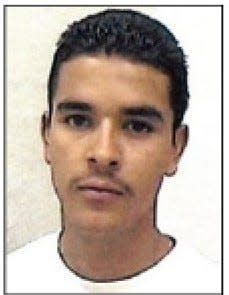
Also charged in the indictment was Jorge Adrian Ortega Gallegos, alias "Naranjas" (oranges), who allegedly served as "La Oficina," meaning "the office," as the cartel communications manager.
"La Oficina" could provide cartel members another member's cellphone number or radio frequency and disseminated information on rivals and army patrols as well as messages from "Chuyin," the indictment stated. Ortega Gallegos is considered a fugitive by U.S. authorities.
Opinion column: These new synthetic opioids could make fentanyl crisis look like 'the good old days'
Other alleged cartel members and associates named in the indictment who are considered fugitives are: Raul Corella Hernandez, aka "El Ruso" (the Russian), "Vladimir" and "El Valle," Jorge "Compa Chuy" Olivas Nevarez and Guadalupe A. Prieto.
The cartel case was investigated by the FBI, the U.S. Drug Enforcement Administration and the Las Cruces-Doña Ana County Metro Narcotics Agency.
The Juárez drug cartel is not as powerful as it was decades ago but remains a regional force in Chihuahua, West Texas and New Mexico, DEA officials have said.
This article originally appeared on El Paso Times: Juárez cartel boss 'El 80' pleads guilty in US marijuana case

